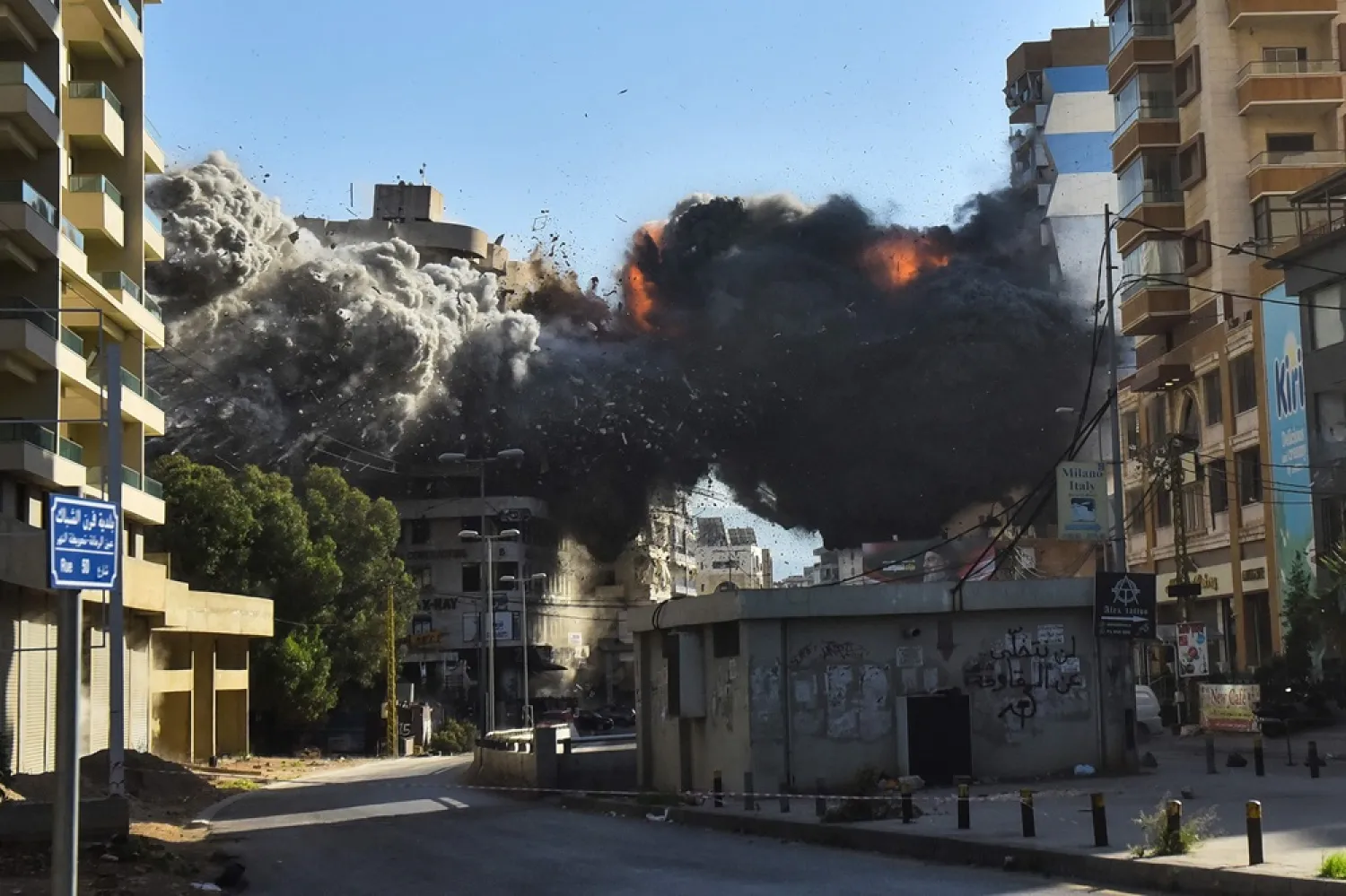Israeli forces pounded southern Lebanon and the outskirts of the capital Beirut on Friday, killing at least five medics, and ground troops clashed with Hezbollah fighters in the south.
Israel has pushed on with its intense military campaign against the Iran-backed armed group Hezbollah, tempering hopes that efforts by a US envoy will lead to an imminent ceasefire.
US mediator Amos Hochstein said this week in Beirut that a truce was "within our grasp". He travelled on to meet Israeli Prime Minister Benjamin Netanyahu and Defense Minister Israel Katz before returning to Washington, the news outlet Axios said.
His trip was aimed at ending more than a year of hostilities between Israel and Hezbollah along Lebanon's southern border, which escalated when Israel ramped up its strikes in late September and sent ground troops into Lebanon on Oct. 1.
Israeli troops have fought Hezbollah in a strip of towns along the border and this week pushed deeper to the edges of Khiyam, a town some six km (four miles) from the border.
Hezbollah said it had fired rockets at Israeli troops east of Khiyam at least four times on Friday. Lebanese security sources told Reuters Israeli troops had also advanced in a string of villages to the west. They said Israel was most likely trying to isolate Khiyam before attacking the town.
Four Italian soldiers were lightly injured after two rockets exploded at a UNIFIL peacekeeping force base in southern Lebanon, a spokesperson for UNIFIL said on Friday.
Italian sources said an investigation was under way. Foreign Minister Antonio Tajani told Italian media that Hezbollah might be responsible for the attack.
Israeli strikes on two other villages in southern Lebanon killed five medics from a rescue force affiliated with Hezbollah, the Lebanese health ministry said.
The more than 3,500 people killed by Israeli strikes over the last year include more than 200 medics, the health ministry said.
EVACUATION WARNINGS AND STRIKES
Israel says its aim is to secure the return home of tens of thousands of people evacuated from Israel's north because of rocket attacks by Hezbollah, which began firing across the border in support of Hamas at the start of the war in Gaza in October 2023.
Israel also mounted more strikes on Beirut's southern suburbs, a once densely populated stronghold of Hezbollah.
Abeer Darwich, a resident of a building that was hit in Beirut southern suburbs on Friday, had to leave her apartment immediately after an evacuation warning from Israel's military.
She stood watching while an Israeli strike pounded the high rise building into dust.
"Do you know that most of the apartments' owners took credit to buy those houses? Life savings are gone, memories and safety ... which Israel decided to steal from us," Darwich said .
Evacuation orders were issued on X for several buildings in the area on Friday. Reuters footage showed one of the strikes appearing to pierce the center of a multi-storey building, which toppled in a cloud of smoke.









